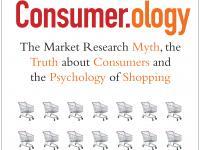With risk aversion taking an increasing grip on corporate boardrooms, it’s no surprise that marketing professionals increasingly reach for the crutch of market research to support their proposals.
This book should change that. At the heart of Philip Graves’ thinking, which will send a shiver down the spine of the research industry, is the notion that consumer behaviour comes largely from the unconscious mind, whereas market research findings usually arise from the conscious mind. Because we can’t access our unconscious mind, when questioned we’re unable to describe how it will affect our decisions. And the conscious mind is far more receptive to new ideas than its unconscious counterpart.
Graves takes a litany of marketing disasters, including New Coke, the Millenium Dome and the re-branding of the Post Office as Consignia, and argues that managers were misled by market research. He conveniently oversimplifies a more complex set of flawed decisions, but makes a good case. More persuasively, he cites Red Bull, Absolut vodka and the renaissance of Doctor Who as commercial triumphs that, after adverse research findings, would have been abandoned by less confident managers.
While criticising most market research, the author is particularly damning of focus groups, pointing out how putting strangers in an artificial environment and leading them, at length, to build on each others’ opinions could not be further removed from the real-life context in which consumers unconsciously make decisions. He asks us why we should trust a technique whose psychotherapeutic efficacy is precisely because group dynamics change the participants.
Having a well substantiated reason to slash research spending would be welcome news, given hard-pressed marketing budgets. But Graves makes a compelling case for using these funds to observe current consumer behaviour, and conduct “live trials” which come much closer to reproducing the mindset and context needed to unlock the unconscious mind. In situations where live trials aren’t practical, he provides a framework for selecting the best research method using the mnemonic of AFECT (Analysis of behavioural data, Frame of mind, Environment, Covert study, Timeframe).
Alongside his debunking of the market research industry, the author takes us on a fascinating romp through the psychological underpinnings of consumer behaviour: risk aversion, safety in numbers, scarcity value and priming. It’s well written, accessible and entertaining, yet thought provoking.
Consumer.ology is a rich digest of insights on consumer psychology. It should be essential reading for marketers and general managers, and carefully hidden away from anyone whose livelihood depends on market research. As Graves says, paraphrasing Edgar Allen Poe, “believe nothing we hear from consumers, half of what we see them do, and almost everything that the sales data says that they’ve done”.
Join The Marketing Society Book Club. If you are a member of The Marketing Society you could write a 300-word review for the Marketing Society’s blog. Contact Will Armstrong to get involved. Find out more about the benefits of joining The Marketing Society’s exclusive network.
Newsletter
Enjoy this? Get more.
Our monthly newsletter, The Edit, curates the very best of our latest content including articles, podcasts, video.
Become a member
Not a member yet?
Now it's time for you and your team to get involved. Get access to world-class events, exclusive publications, professional development, partner discounts and the chance to grow your network.

